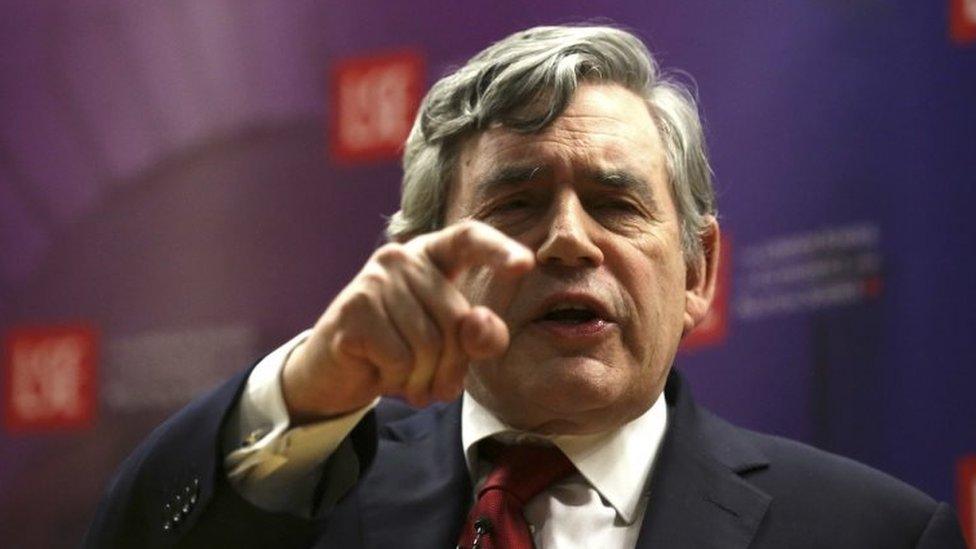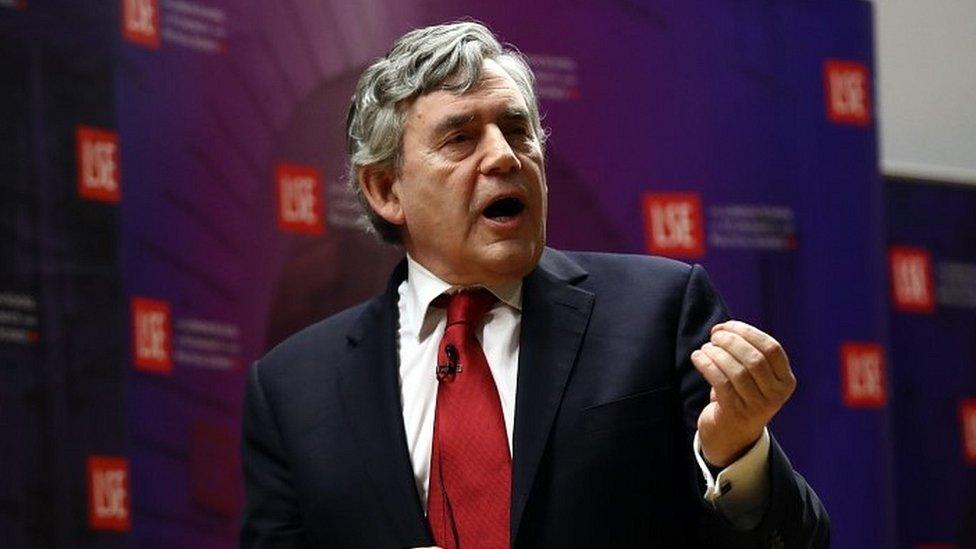EU referendum: Why Gordon Brown is wading into the debate
- Published

He's back. It's six years since he was in charge, but this morning the former prime minister Gordon Brown has, if not taken charge of Labour's EU campaign, at least stepped forward as one of its big beasts.
For the next six weeks he'll be giving speeches and appearing at events around the country, putting forward his case that Britain must "lead, not leave" the EU.
Speaking to him this morning he gave some of the (by now) familiar warnings about the risks of quitting the union - for jobs, for security, for the environment.
But he's called up a set of arguments that have so far, not played a big part in the debate - our history, and place in the world.
In his words, the English channel is "not a moat, it's a highway to the world", we've always been an outward looking country, sending missionaries and explorers around the globe. He said it just "doesn't make sense" to walk away from that.
But Mr Brown is not just targeting a set of arguments but a set of voters - Labour voters.
'Make a contribution'
He told me he was not criticising the campaign so far, being led by Alan Johnson.
But there are certainly nerves among its senior figures about getting Labour voters out in the referendum at all.
The former PM told me: "I think we've had a phoney war - the positive message I'm putting across has got a way of getting across particularly with people who didn't vote Conservative but who feel culturally concerned about the future of the country".
But he went on to say: "I can make a contribution - I think when people realise the Labour Party is fully behind us staying in the European Union, but Britain…Labour voters who have historically in the last 20 or 30 years supported Europe will come out to vote in favour."
He didn't say it, but he didn't need to.
There are two silent concerns inside strands of the Labour Remain camp.
First that the focus on the economic message, Project Fear as it's nicknamed, isn't enough.
And second, Labour voters who might be a bit fed up with the EU but are reluctantly supportive might not turn out to vote.
During the Scottish independence referendum Mr Brown's last minute fiery political sermons were a shot in the arm for the Unionists.
He is intervening now (as ever) on his own terms, but the former prime minister's interventions this time might have some effect.
- Published11 May 2016
